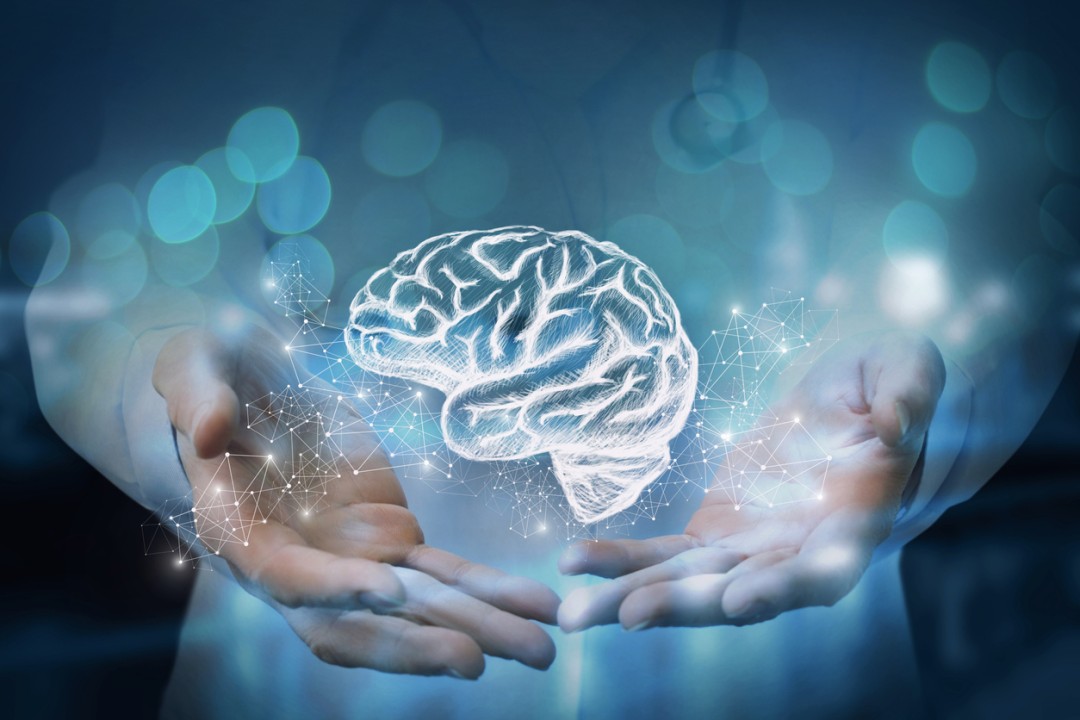Mental health is an essential aspect of overall well-being that affects how individuals think, feel, and behave. It encompasses emotional, psychological, and social aspects of life, influencing everything from relationships and work to personal happiness. Despite its importance, mental health often remains misunderstood, stigmatized, and neglected in many societies around the world.
Psychological disorders—also known as mental health disorders—are common but can be debilitating if left unaddressed. They range from anxiety and depression to more complex conditions such as schizophrenia and bipolar disorder. Recognizing the signs and symptoms of mental health issues early on can be crucial to seeking effective treatment and improving quality of life.
This article aims to explore the significance of mental health, recognize common psychological disorders, and address the importance of seeking help. We will dive into the various types of mental health conditions, discuss their impact on individuals and society, and provide practical steps to support those living with these disorders.
1. Understanding Mental Health and Psychological Disorders
1.1 What is Mental Health?
Mental health refers to the state of an individual’s emotional, psychological, and social well-being. It affects how people think, feel, and act, as well as how they handle stress, relate to others, and make decisions. Good mental health is more than just the absence of mental illness; it also involves the ability to lead a fulfilling and meaningful life, cope with life’s challenges, and adapt to stress.
1.2 Psychological Disorders: What Are They?
Psychological disorders, or mental health disorders, are conditions that affect an individual’s thoughts, feelings, emotions, or behaviors in a way that interferes with their ability to function in daily life. These disorders can range from mild to severe and can impact various aspects of life, such as relationships, work performance, and physical health.
Psychological disorders can be caused by a complex interaction of biological, environmental, and psychological factors. Genetics, childhood trauma, abuse, family history, and even prolonged stress can contribute to the development of mental health conditions.
2. Common Psychological Disorders
2.1 Anxiety Disorders
Anxiety disorders are characterized by excessive fear or anxiety that interferes with a person’s daily activities. These disorders are among the most common mental health conditions. People with anxiety disorders may experience feelings of panic, fear, and unease that can be triggered by specific situations or come on unexpectedly.
- Generalized Anxiety Disorder (GAD): Characterized by chronic, excessive worry and anxiety that is difficult to control, often affecting various areas of life.
- Panic Disorder: Involves recurrent panic attacks—intense, sudden bouts of fear that occur without warning and can lead to physical symptoms such as heart palpitations, shortness of breath, and dizziness.
- Social Anxiety Disorder: Involves extreme fear of social situations and being judged by others, often leading to avoidance of social interactions.
- Specific Phobias: A persistent, excessive fear of specific objects or situations, such as heights, spiders, or flying.
2.2 Mood Disorders
Mood disorders involve disturbances in a person’s emotional state, causing extreme shifts in mood that are inappropriate for the situation.
- Depression: Characterized by persistent feelings of sadness, hopelessness, and a lack of interest or pleasure in activities. It can impact every area of life, from work to personal relationships, and may lead to thoughts of self-harm or suicide.
- Bipolar Disorder: A condition characterized by extreme mood swings that include emotional highs (mania or hypomania) and deep lows (depression). The severity of these mood swings can lead to drastic changes in behavior, energy levels, and decision-making.
2.3 Obsessive-Compulsive Disorder (OCD)
OCD is marked by recurring, unwanted thoughts (obsessions) and repetitive behaviors or mental acts (compulsions) that a person feels driven to perform in response to the obsessions. These compulsions are often meant to reduce anxiety or prevent a feared event but can interfere with normal functioning.
2.4 Post-Traumatic Stress Disorder (PTSD)
PTSD is a mental health disorder that develops after an individual experiences or witnesses a traumatic event. Symptoms can include flashbacks, nightmares, severe anxiety, and avoidance of situations or places that remind the person of the trauma. PTSD can have long-lasting effects on an individual’s emotional health and well-being.
2.5 Eating Disorders
Eating disorders involve severe disturbances in eating behavior and related thoughts and emotions. They can be driven by an obsession with food, weight, and body image, and they often have serious health consequences.
- Anorexia Nervosa: A condition in which individuals have an intense fear of gaining weight and severely restrict their food intake.
- Bulimia Nervosa: Characterized by episodes of binge eating followed by compensatory behaviors such as vomiting, excessive exercise, or fasting to prevent weight gain.
- Binge Eating Disorder: Involves recurrent episodes of consuming large quantities of food without control, often resulting in distress.
2.6 Schizophrenia
Schizophrenia is a chronic, severe mental health disorder characterized by a disconnection from reality. Symptoms may include hallucinations, delusions, disorganized thinking, and impaired cognitive function. Schizophrenia can profoundly impact a person’s ability to think clearly, manage emotions, and interact with others.
2.7 Personality Disorders
Personality disorders involve persistent patterns of thoughts, feelings, and behaviors that differ significantly from societal expectations. These patterns can lead to problems in relationships and functioning. Common types include:
- Borderline Personality Disorder (BPD): Characterized by unstable moods, relationships, and self-image.
- Antisocial Personality Disorder (ASPD): Involves a disregard for the rights of others and a lack of empathy or remorse.
3. The Impact of Psychological Disorders
Mental health disorders can have far-reaching effects, not only on individuals but on society as a whole. The social, economic, and personal consequences of untreated mental health conditions can be devastating.
3.1 Personal Impact
- Emotional Struggles: Psychological disorders often bring about deep emotional pain, frustration, and isolation. Individuals may struggle with feelings of worthlessness, anxiety, or hopelessness.
- Interpersonal Strain: Relationships with family, friends, and colleagues may be affected. People with mental health disorders may withdraw from social interactions, leading to feelings of loneliness and alienation.
- Impaired Functioning: Mental health conditions can disrupt a person’s ability to work, study, or perform daily tasks, leading to a decline in productivity, quality of life, and economic stability.
3.2 Economic Impact
- Workplace Costs: Mental health disorders contribute significantly to absenteeism, decreased productivity, and increased healthcare costs in the workplace.
- Healthcare Costs: Treating psychological disorders often requires ongoing medical care, including therapy, medication, and sometimes hospitalization, leading to substantial healthcare costs for individuals and society.
- Social Support: Individuals with mental health conditions may rely on social support systems, including disability benefits, which can place strain on public health resources.
4. Recognizing and Addressing Psychological Disorders
4.1 Signs and Symptoms to Look For
Recognizing the signs and symptoms of mental health disorders is the first step toward seeking help. Some common signs include:
- Persistent sadness or irritability
- Extreme mood swings or emotional highs and lows
- Loss of interest in activities once enjoyed
- Difficulty concentrating or making decisions
- Changes in appetite, sleep, or energy levels
- Withdrawal from social activities
- Thoughts of self-harm or suicide
4.2 Seeking Help: Treatment Options
Once a psychological disorder is identified, treatment options are available that can help individuals regain control of their mental health. These include:
- Psychotherapy: Also known as talk therapy, psychotherapy helps individuals address the emotional and psychological factors that contribute to mental health disorders. Cognitive-behavioral therapy (CBT), dialectical behavior therapy (DBT), and psychodynamic therapy are common approaches.
- Medication: Antidepressants, anxiolytics, antipsychotics, and mood stabilizers can be prescribed to manage symptoms and restore balance in the brain’s chemical processes.
- Support Groups: Peer support groups provide individuals with a sense of community and understanding, helping to reduce feelings of isolation.
- Lifestyle Changes: Regular physical activity, a balanced diet, and adequate sleep can support mental well-being. Stress management techniques, such as mindfulness and meditation, can also improve emotional regulation.
4.3 Breaking the Stigma
Despite the prevalence of mental health issues, stigma around psychological disorders remains a significant barrier to treatment. Misunderstanding, fear, and prejudice can discourage individuals from seeking help. To address this, it is crucial to:
- Educate the public about mental health disorders to reduce misconceptions and harmful stereotypes.
- Promote open dialogue and encourage conversations about mental health in communities, schools, and workplaces.
- Normalize seeking help for mental health issues as an essential part of self-care and well-being.
5. Conclusion
Mental health matters. Recognizing and addressing psychological disorders is not only essential for the well-being of individuals but also for the overall health of society. With early intervention and effective treatment, individuals with mental health conditions can lead fulfilling lives. Breaking the stigma surrounding mental health and fostering a supportive environment for those struggling is key to creating a healthier, more compassionate world.
FAQs
- What is the difference between mental health and mental illness?
- Mental health refers to emotional and psychological well-being, while mental illness refers to specific conditions that impact mental health, such as depression, anxiety, and schizophrenia.
- How do I know if I have a psychological disorder?
- Signs of a psychological disorder include persistent feelings of sadness, extreme mood changes, trouble functioning, or changes in sleep, appetite, or energy levels. Consulting with a mental health professional is the best way to get an accurate diagnosis.
- Can mental health disorders be treated?
- Yes, mental health disorders can often be managed and treated through a combination of therapy, medication, and lifestyle changes.
- Is mental health care expensive?
- Mental health care can vary in cost, but many health insurance plans offer coverage for therapy and medication. Some public health systems also provide affordable or free mental health services.
- How can I support a friend or family member with a psychological disorder?
- Be compassionate, listen without judgment, encourage professional help, and offer practical support. Educate yourself about their condition to provide informed assistance.
- Can children experience psychological disorders?
- Yes, children can develop mental health disorders such as anxiety, depression, ADHD, and conduct disorders. Early intervention is crucial for helping children manage these conditions.
- What can I do to improve my mental health?
- Regular exercise, a balanced diet, sufficient sleep, mindfulness practices, and maintaining social connections are key to supporting mental well-being.
Key Takeaways
- Mental health disorders are common but treatable. Recognizing the signs early can improve outcomes.
- Psychological disorders, such as anxiety, depression, and schizophrenia, can severely impact a person’s quality of life but can be managed with proper treatment.
- Breaking the stigma around mental health is essential for encouraging people to seek help.
- Effective treatment includes therapy, medication, support groups, and lifestyle changes.
- Everyone’s mental health matters, and taking steps to care for it can lead to a better quality of life for individuals and society.

